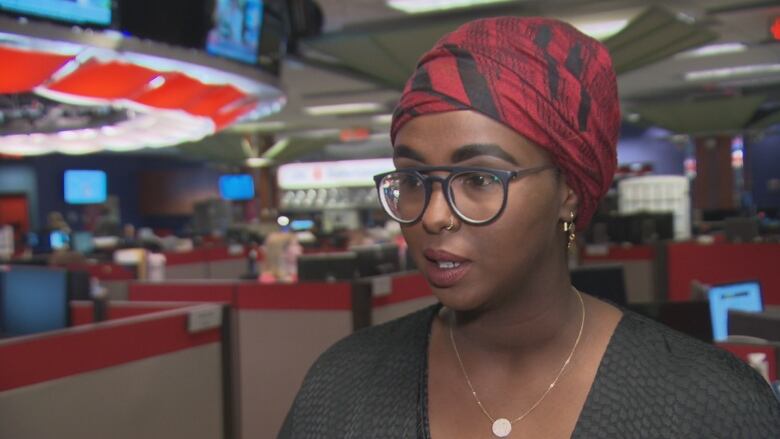Criticized as out of touch, police advisory group starts over
After 17 years, volunteer committee to disband, seek new mandate
An advisory group with the Ottawa Police Service said it didn't have the tools it needed to build bridges between diverse communities and law enforcement and is now looking for a new mandate and structure to do just that.
Ketcia Peters, the community co-chair of the Community and Police Action Committee (COMPAC), said this is a positive step for communities that felt they haven't been included in the past.
"Basically, we're going to start over," Peters told CBC News Tuesday.
"Our demographic and our realities in our city is changing. What we're looking to do is to listen to the demand and the concern of the community when they told us time and time again that the committee, the way it's currently being run, is not meeting their needs."
- Police watchdog takes questions at COMPAC event
- COMPAC member calls for suspension of officer over racist comments
- COMPAC raises concerns about reinforced gloves
The group, formed in 2000, aims to develop partnerships between racialized, Indigenous and other diverse communities and the police.
The report on the future of COMPAC outlines criticisms about the lack of ability to ensure there's action after the community raises concerns and no process to respond to "critical incidents involving police and members of racialized, marginalized or Indigenous communities."
Peters said one of the problems is a basic lack of visibility for the committee.
"Even individuals who are well-informed in civic engagement were not aware of the committee," she said. "There was a lack of awareness, there was a lack of accountability, in terms of the way we actually represented their issues at the table."
'Speaking between each other'
The Justice for Abdirahman Coalition is one of the groups that has been providing feedback on COMPAC's role. The coalition was created following the death of Abdirahman Abdi, a Somali-Canadian who died after a violent interaction with an Ottawa police officer in July 2016.
Dehabo Ahmed Omer is a spokesperson for the group, which has attended several of the committee's meetings.
"It's never been about what the community's saying," she said.
"The majority of those members are either OPS [Ottawa Police Service] officers or civilian members of the board; it's just them speaking between each other."

Omer said the coalition has been asking COMPAC to make sure its members are going into the community and gathering their views and concerns. She said the lack of community attendance at meetings was a sign of a disconnect.
The consultation on the mandate of the new committee could be an opportunity to establish that connection, she said.
"We as a coalition are really encouraged by this news," she said. "If they're able to go out to the communities and get a better reflection of the residents they serve, they're going to be able to build a COMPAC that will be constructive and for sure conducive to the people that they serve."
Omer said reaching out to racialized communities and Indigenous people will be especially important.
New mandate, new members
Peters said the new committee will still have an advisory function, but may also ask police to report back on how information from the community changes policy.
Current board members will be given a farewell party in December and then asked to participate in recruiting their replacements, though they will be allowed to apply for their old volunteer positions.
Peters said the relaunch is well-timed to take advantage of broader reviews of police oversight and Ottawa police's Multi-Year Action Plan on Bias-Neutral Policing.
The new community advisory group is expected to launch next spring.